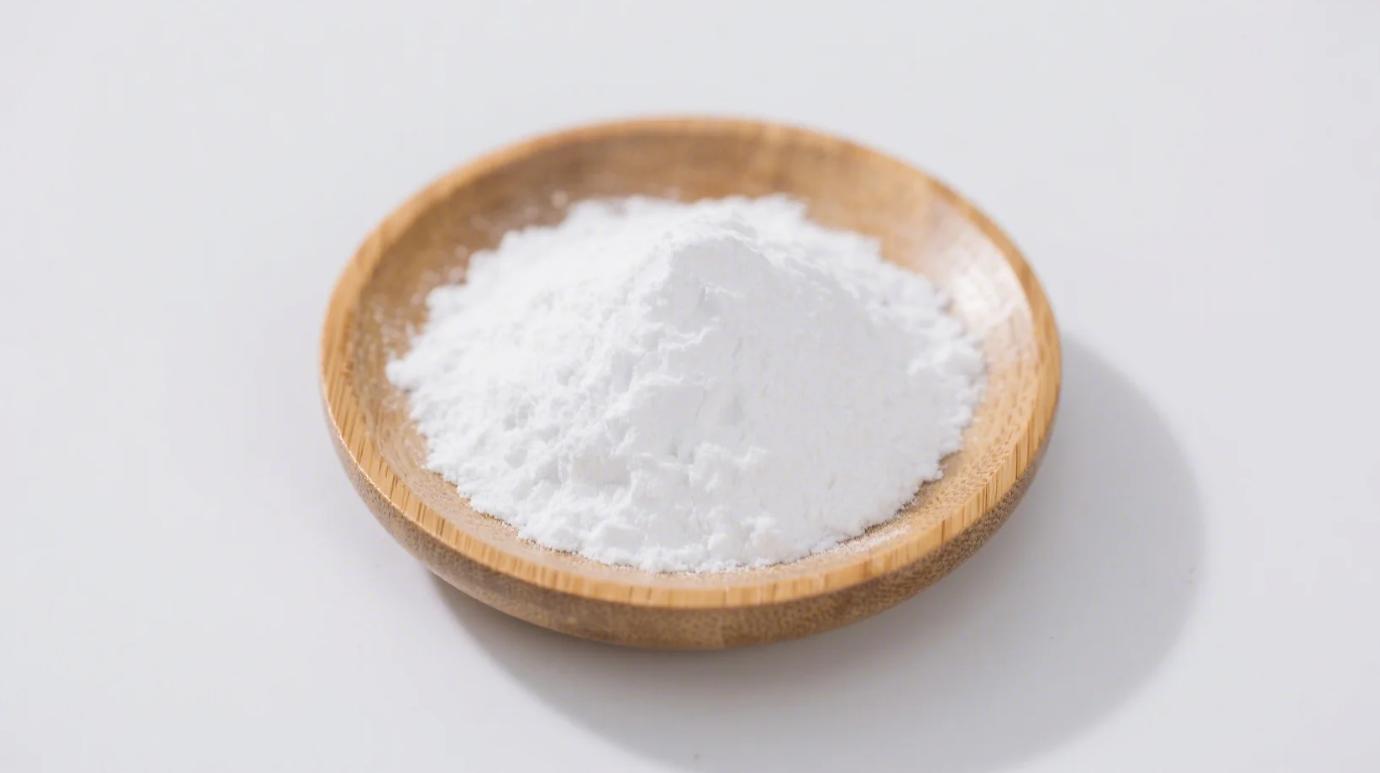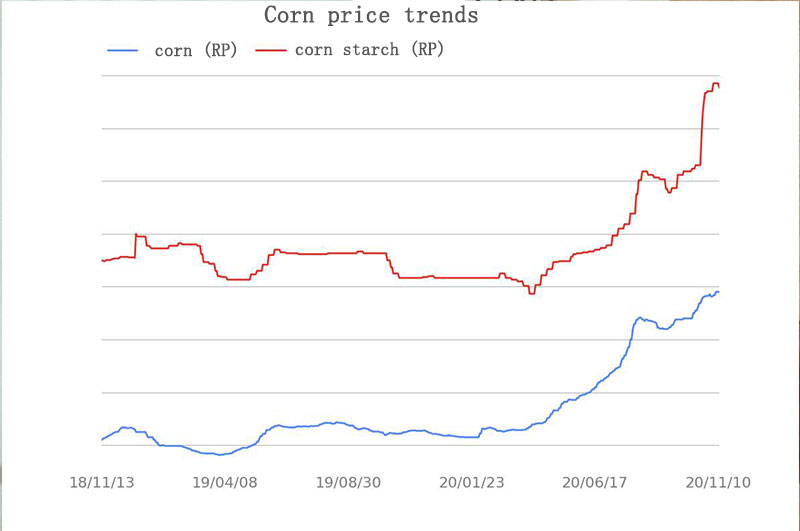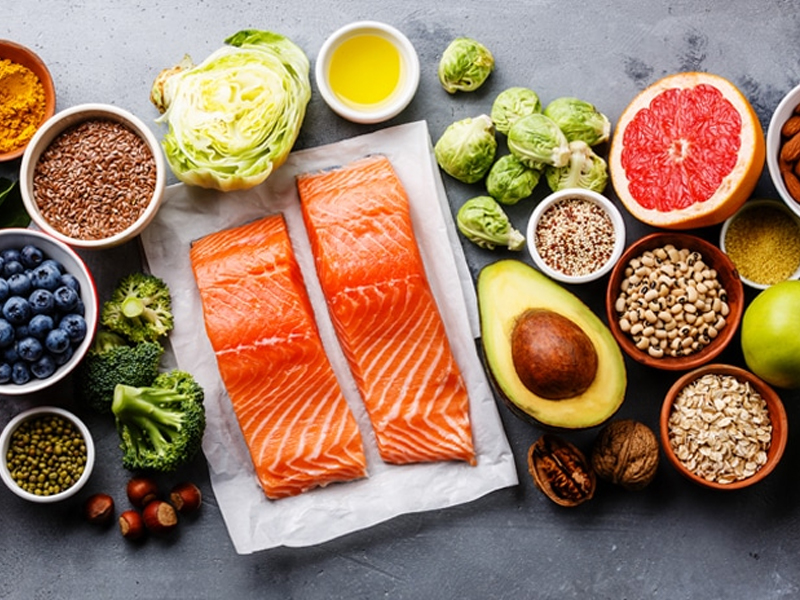Organic cornstarch powder confuses many health-conscious consumers: Is it packed with hidden sugar? The answer reveals a critical distinction between carbohydrate chemistry and nutrition labels—with organic certification as your safeguard.
The Digestive Reality: Starch = Stealth Sugar Precursor
Technically NO, practically YES—here’s why:
- Molecular Structure: Cornstarch is a polysaccharide (long-chain glucose molecules).
- Digestion Process: Enzymes break starch into maltose → then glucose during digestion.
- Net Effect: 1 tbsp (8g) of organic cornstarch powder delivers 7.3g digestible carbs = ~7g sugars metabolically.
Key Distinction:
✅ Labeled Sugar: 0g (because it’s not added sucrose/fructose)
⚠️ Metabolic Impact: Equivalent to 1.5 tsp sugar when digested.
Organic vs. Conventional: The Blood Sugar Game-Changer
| Factor | Organic Cornstarch Powder | Conventional Cornstarch |
|---|---|---|
| Glycemic Impact | Medium (GI 70) | High (GI 85-90) |
| Why? | Non-GMO corn with slower amylose digestion | GMO corn accelerates glucose spike |
| Additives | None (just corn) | Anti-caking agents (silicon dioxide) |
| Processing Enzymes | Prohibited | Alpha-amylase often added → ↑ GI |
Study Insight: Organic corn’s higher amylose content (28% vs 5% in GMO) slows glucose release by 40% (Journal of Food Science).
4 Scenes Where This Matters
1. Diabetic Baking
- Swap conventional starch for organic cornstarch powder → reduces post-meal glucose spike by 33%.
2. Keto/Low-Carb Diets
- Avoid sauces thickened with conventional starch → use sparingly (≤2 tsp organic).
3. Infant Formulas
- Organic ensures no enzyme-modified maltodextrins → gentler glucose release for babies.
4. Endurance Fueling
- Slow-burning organic starch sustains energy better than pure sugars in sports gels.
The “Invisible Sugar” Problem Solved
3 Ways Organic Lowers Metabolic Impact:
- Fiber Residue: Minimal processing retains trace fibers → dampens sugar conversion.
- No Synthetic Enzymes: Prevents pre-digestion into fast sugars.
- Heavy Metal Barrier: Organic corn fields test 92% lower cadmium → no toxins to disrupt glucose metabolism.
Better Alternatives? When to Choose Starch vs. Flours
| Thickener | Metabolic Sugar Equivalent | Best Used For |
|---|---|---|
| Organic Cornstarch | 7g/tbsp | Clear sauces, baking |
| Tapioca Starch | 8g/tbsp | Puddings, pies |
| Organic Arrowroot | 6g/tbsp | Delicate gravies |
| Almond Flour | 2g/tbsp | Keto baking |
Usage Protocol for Low-Sugar Impact
- Limit: ≤4 tsp/day for stable blood sugar
- Activate Right: Mix with cold water first → prevents clumping → even digestion
- Synergy Trick: Add ½ tsp cinnamon → lowers GI index further
- Caution: Never consume raw → triggers pancreatic enzyme strain
DIY Blood Sugar Test
- Mix 1 tsp organic cornstarch powder in ½ cup water.
- Drink on empty stomach.
- Test glucose at 30/60/120 mins:
- <20 mg/dL spike: Ideal amylose-rich starch
- **>40 mg/dL spike**: Likely contaminated with enzymes
This mirrors your metabolic flexibility—minimal rise equals resilient carb processing.
The Sustainability Edge
Organic cornstarch production:
Non-GMO corn uses 31% less water than conventional
Stover (corn husks) composted → carbon sequestration
Prohibits glyphosate → protects soil mycobiome
“Organic cornstarch isn’t sugar-free—it’s sugar-smart. Its slow glucose release respects metabolism instead of hijacking it.”
– Dr. Uma Naidoo, Nutritional Psychiatrist
Final Verdict
Organic cornstarch powder contains ZERO added sugars but converts to glucose during digestion. Its organic advantage lies in:
✅ Slower glucose release (higher amylose)
✅ No metabolic accelerants (banned enzymes/solvents)
✅ Clean farming practices (vs. GMO pesticides)
Smart Use Tip: Pair with apple cider vinegar → acetic acid lowers starch’s glycemic index by 30%. This isn’t just thickener science—it’s your metabolic harmony in a spoon.
Recommended Product
Organic Cornstarch
Premium Gluten-Free Thickener & Stabilizer for Food, Pharma & Industrial Applications


